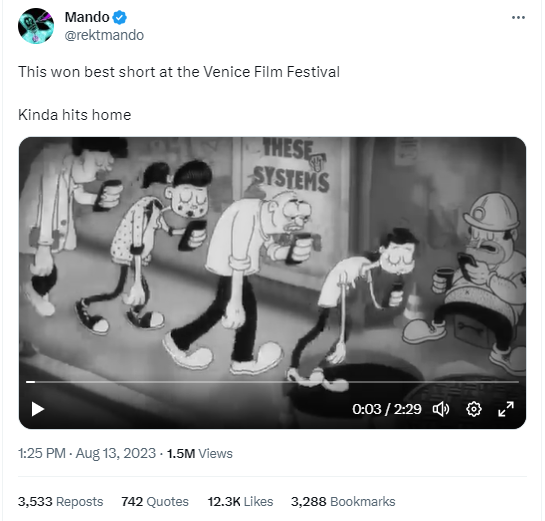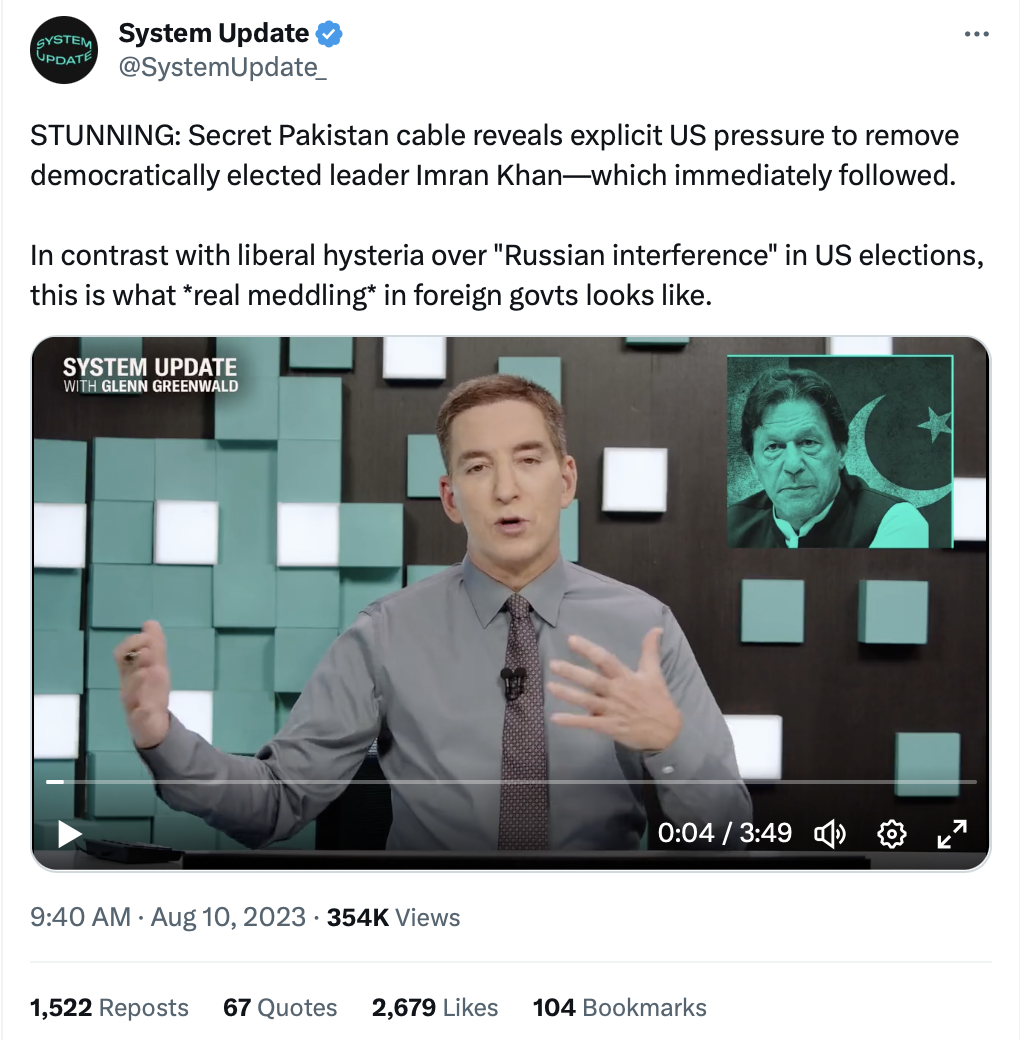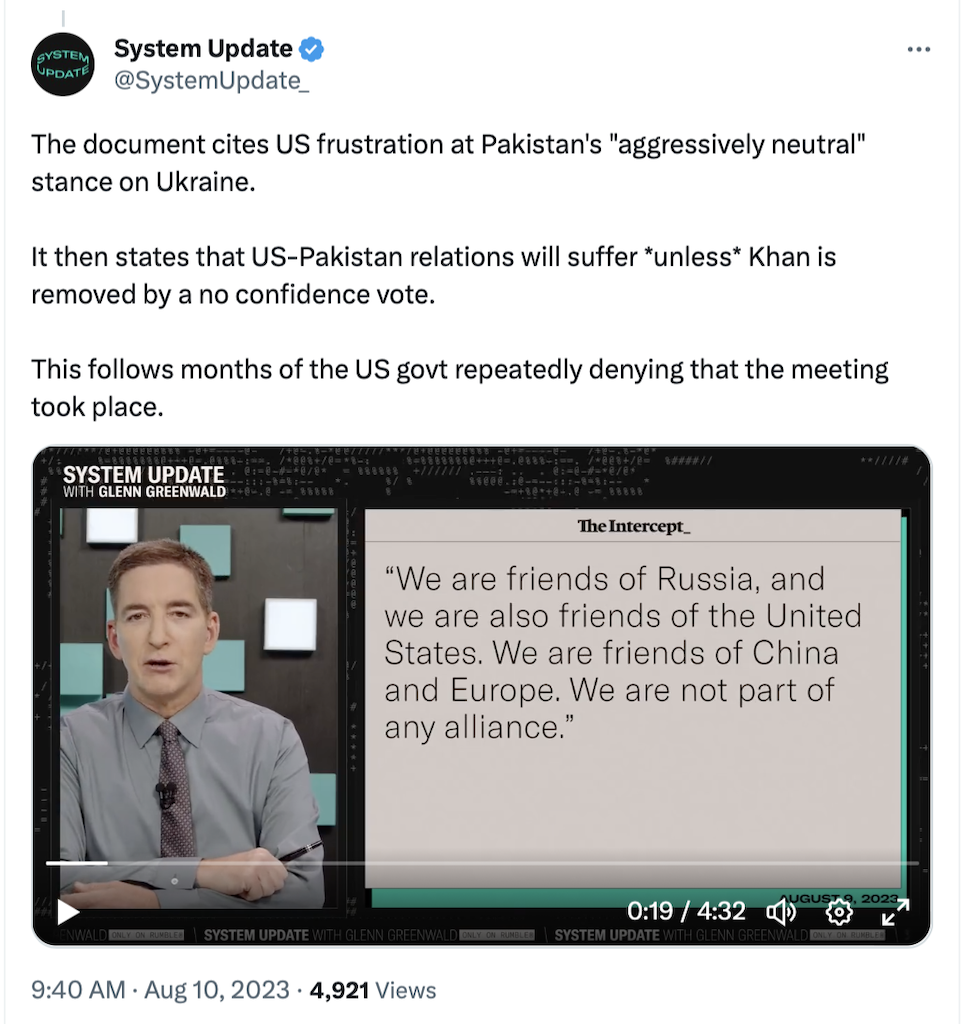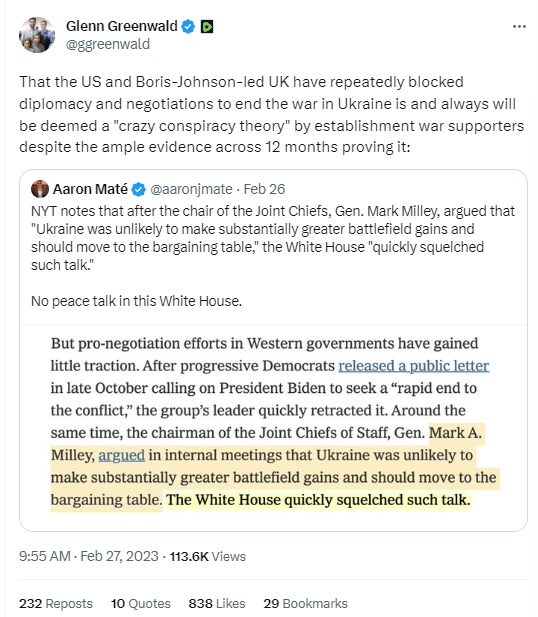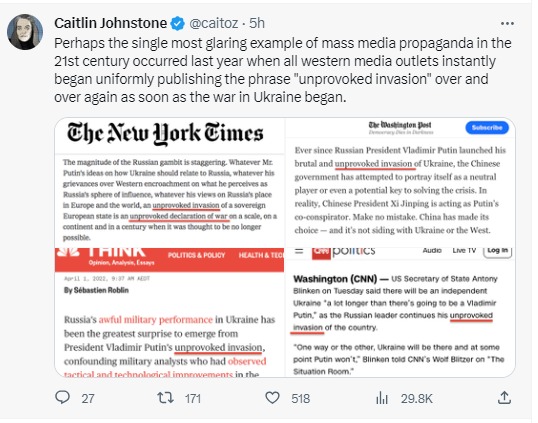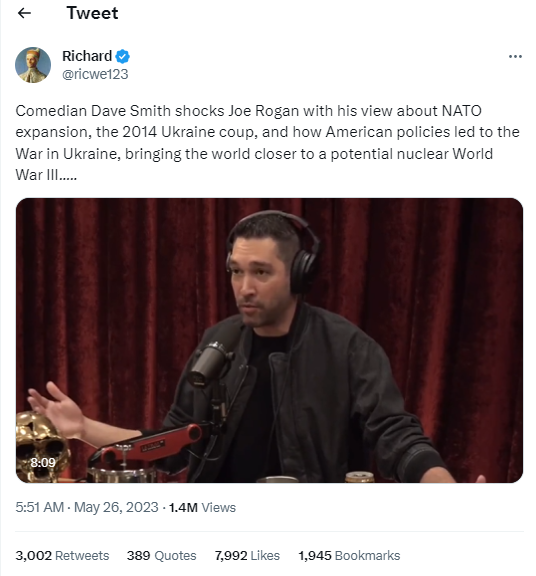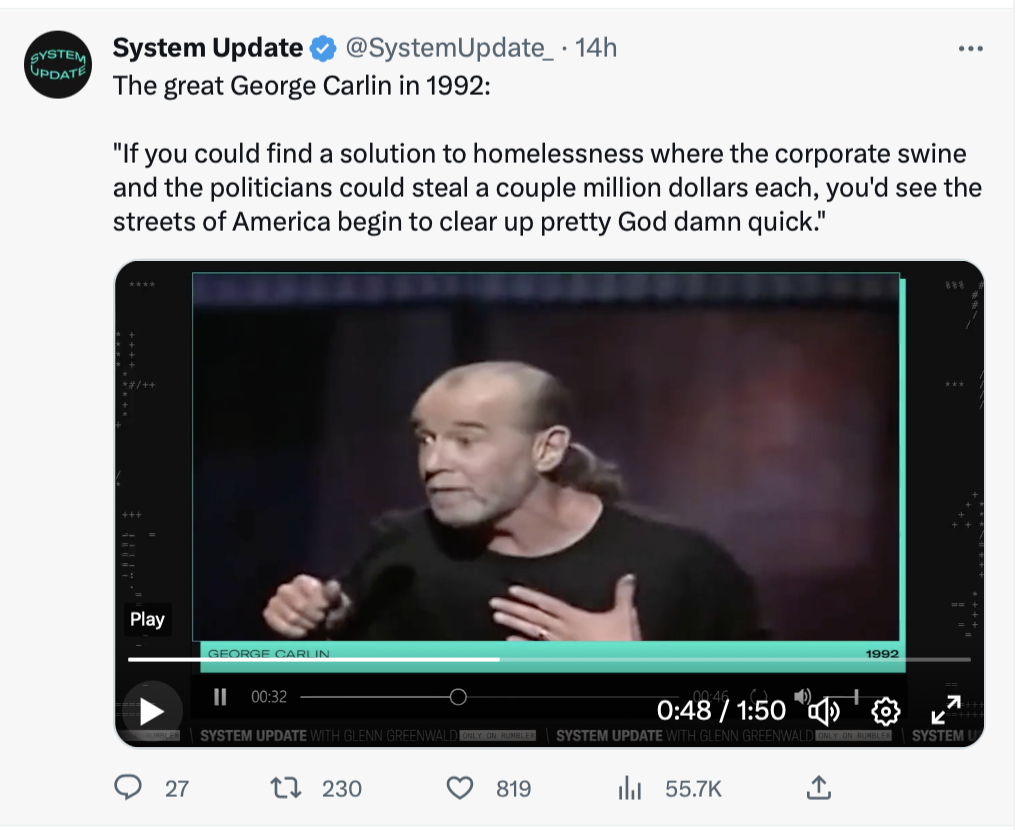Here’s What Real Interference with Another Country’s Political System Looks Like
Imran Kahn's "crime" was declaring that Pakistan would stay neutral with regard to the U.S. funded war in Ukraine.
Self-Censorship and Love
I am not on any political team. In my view, both major political parties are thoroughly corrupt. I am guided only by curiosity. It's amazing what happens to one's judgment when one renounces membership in all political tribes and their allied news media (which function as their respective PR departments). It allows you to see things that were previously invisible. Things that constitute evidence of dishonesty and hypocrisy and these things are ubiquitous, sparing no organization and no person.
It's unpleasant to have one's eyes opened like this, but that's part of the price of having access to an unfiltered stream of information. The other part is that you get to (have to) do the work to figure out what is believable. Here's a recent example: alleged corruption of Joe Biden. Many people glue themselves to left-leaning corporate media because they prefer to hear only good things about Biden. This media filtering generates a false consensus in their minds. It causes many people to conclude that Biden walks on water. It also causes many people to conclude that Trump's misconduct somehow exonerates Biden's potential corruption. There is no consensus, however.
Check out the House Oversight Committee's investigation. Lots and lots of evidence is detailed by the committee. One wouldn't know this information if one is intentionally closing one's eyes to everything other than left-leaning corporate media. I propose this thought experiment: In the Oversight Committee report, simply substitute "Trump Family" where ever you see "Biden Family" and ask yourself whether you would be deeply concerned about corruption. When I'm trying to figure out what is going on in the world, I don't give a shit about the Bidens or the Trumps. I'm concerned only about corruption, which inevitably hurts the American People.
One other thing about Biden's conduct bothers me immensely. It's a question we need to ask. Vivek Ramaswamy recently asked it:
The fact that we're sending hundreds of billions to Ukraine without Biden even once articulating why it advances U.S. national interests reeks of corruption. It's now fair game to ask whether the geopolitical disaster known as Hunter Biden has something to do with it. The bipartisan establishment, from @GovChristie to @NRO to @MSNBC, is attacking me for even asking the question. But just think independently for a moment.
[Emphasis added]. Have we been participating in the killing of 9,000 Ukrainian civilians and injuries to another 16,000 (and numerous other casualties of Ukrainian and Russian soldiers) for the reason that Joe Biden had a felt need to demonstrate his love and support for his son Hunter Biden? And see here and here. I ask this because I have not yet heard one reason why the U.S. should have gotten involved in a territorial dispute regarding the Donbas Region. Is the sanctity of the father-son bond the reason the U.S. refused a chance to resolve this war at the outset?
Corporate Media Marching in Lockstep to the Drumbeat of War
Caitlyn Johnson reminds us of the headlines at the beginning of the Ukraine war:
No nuance here. None of the context, which could have been reported quite succinctly, as shown by comedian Dave Smith:
George Carlin Discusses America’s Love of War
Glenn Greenwald introduces this video of George Carlin with this comment: If you don't get this point Carlin is making, "You don't know anything about how Washington works."
- Go to the previous page
- 1
- …
- 11
- 12
- 13
- 14
- 15
- 16
- 17
- …
- 147
- Go to the next page

